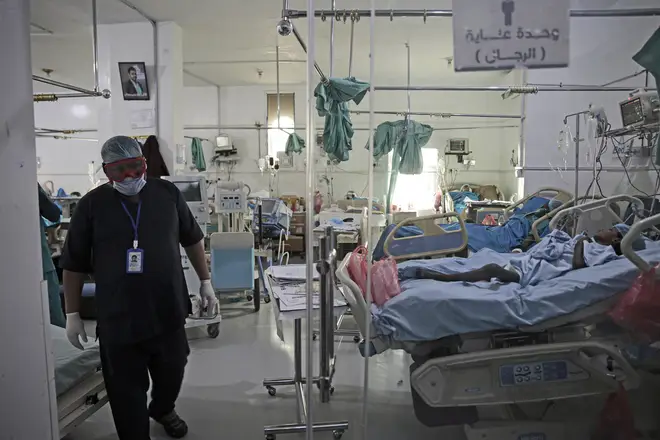
Simon Marks 3pm - 7pm
17 February 2021, 07:53 | Updated: 17 February 2021, 09:02

Foreign Secretary: More money needed to provide vaccines for poorest
Other countries need to "step up to the plate" and "follow the UK's lead" in supporting programmes to get Covid-19 vaccines to the world's most vulnerable, Dominic Raab has told LBC.
The foreign secretary said he will use a meeting of the UN Security Council on Wednesday to call for more support for COVAX AMC - "a mechanism which provides vaccine distribution and doses...to the most vulnerable people" around the world.
"We have taken a lead, we have provided half a billion pounds to secure a billion doses. We now want other countries to step up to the plate," Mr Raab told LBC's Nick Ferrari.
The Covid-19 Global Vaccine Access Facility Advanced Market Commitment (COVAX AMC) aims to provide vaccines to people in 92 of the world's poorest countries, with an equitable rollout guided by the WHO.
Read more: Every UK adult could be offered both Covid vaccine doses by August, claims taskforce boss
At the UN on Wednesday, Mr Raab is expected to warn that allowing Covid-19 to spread in areas without vaccination campaigns will increase the risk of new variants taking hold.
It comes as surge testing is set to be deployed in Surrey, Norfolk and Southampton after more cases of the South African variant were identified in these areas.
Read more: NHS will stay at full capacity 'for at least another six weeks', health official warns

Nadhim Zahawi on tackling BAME jab hesitancy
The foreign secretary will also use the UK's presidency of the UN Security Council to lead the call for local ceasefires to allow the vaccine to be rolled out.
Mr Rabb told LBC the "combination of famine, conflict and Covid" have "compounded to hit the most vulnerable the hardest".
Negotiating ceasefires will allow the "the vaccine that we now have - which is a game changer - to be distributed and administered to the most vulnerable people around the world, in those particularly vulnerable areas".
Ahead of the meeting, the foreign secretary added: "Global vaccination coverage is essential to beating coronavirus...We have a moral duty to act, and a strategic necessity to come together to defeat this virus."
Read more: Children must be 'centre stage' of Government's 'post-Covid plan', commissioner says.

Professor explains potential consequences of developing world not being vaccinated
The Foreign Office estimates more than 160 million people around the world are at risk of being excluded from vaccines because of instability and conflict, in countries including Yemen, South Sudan, Somalia and Ethiopia.
In Yemen just half of the country's health facilities were operational before the Covid-19 outbreak, according to the WHO.

Ceasefires have been used to vaccinate vulnerable people in war-torn countries in the past, including in Afghanistan, where a two-day pause in fighting in 2001 enabled the vaccination of 5.7 million children under five against polio